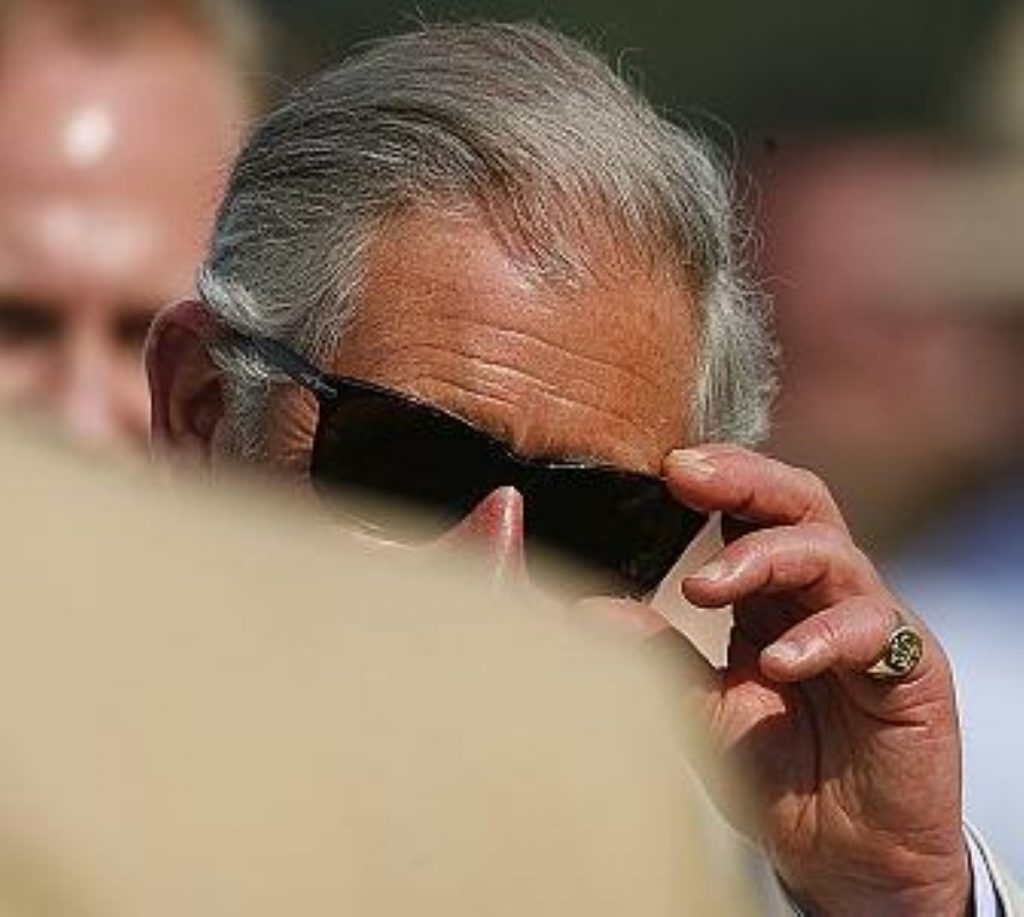A shady defence? Clarence House stands up for Prince Charles’ ‘lobbying incontinence’
A defiant Clarence House has defended the Prince of Wales' right to intervene in government matters, in a move imperilling the monarchy's reputation for impartiality.
A spokesperson for the Prince of Wales said it was Prince Charles' "duty" to talk to ministers in order to communicate the concerns of ordinary people he meets.
It follows the revelation that the heir to the throne has held 36 private meetings with ministers since the 2010 general election, including seven with David Cameron.
The Prince, a passionate advocate of environmental issues, met ministers at the Department for Energy and Climate Change seven times and those at the Department for the Environment, Food and Rural Affairs five times, the Mail newspaper reported.


That compares to just one meeting with foreign secretary William Hague and one with home secretary Theresa May, suggesting his interventions are motivated by personal interest in topics close to his heart.
"The Prince of Wales has a right, indeed it is his duty, to communicate privately with the government on any matter he chooses," a spokesperson for Clarence House said.
She added his insights were of value because they would "bring his unique perspective and reflect the many issues people raise with him personally on his extensive engagements around the country".
Controversy over the Prince's political interests is nothing new. The monarchy has been fighting a long-running court battle to keep secret the contents of 27 letters Charles wrote to ministers in 2004/05, on the grounds that publishing them could "undermine his position of political neutrality".
Campaign group Republic said the 'Queen's and Prince's consent' rule gives the Prince of Wales an effective veto on legislation, which allows Charles to insist on changes to laws which affect his private interests.
MPs are investigating the royal veto and Republic has now called for Charles to appear before them.
"It's no good Charles sending his PR men to give evidence, he needs to turn up and explain himself in public," chief executive Graham Smith said.
"He seems keen to meet MPs in private, now is the time to hear what he has to say out in the open.
"Charles' claim that his meetings with ministers are part of his preparation for being king are simply untrue.
"Charles is abusing his position to promote his own interests and his pet issues. Such dishonesty needs to be directly challenged by MPs and in public."
Labour backbencher Paul Flynn went further, accusing Prince Charles of an "incontinence of lobbying".
Flynn's choice of imagery may have missed a trick. The 2004/05 letters are known as the 'black spider' letters because of his virtually illegible handwriting.

